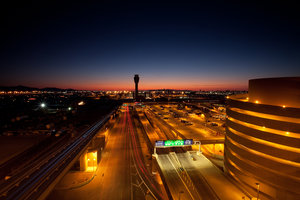TSA and American Airlines testing screening technology at five US airports

The Transportation Security Administration (TSA) and airline operator American Airlines have formed a joint initiative to test new screening technology at several airports across the USA.
The project will involve testing automated security screening lanes at Chicago O’Hare, Dallas/Fort Worth, Los Angeles and Miami international airports, as well as computed tomography (CT) scanners at Phoenix Sky Harbor International Airport in Arizona.
Peter Neffenger, TSA Administrator, said, “Our foremost priority is the security of the traveling public. To ensure that we remain up-to-date in an evolving threat environment, TSA continues to test and deploy state-of-the-art technologies. This collaboration with American Airlines is an important step in enhancing the traveler experience while maintaining effective security.”
Robert Isom, chief operating officer, American Airlines, said, “We are proud to be working collaboratively with the TSA to support next generation screening technology at five of our hubs this autumn. These state-of-the-art lanes, along with new detection technology that will be tested in Phoenix, will enhance security effectiveness and efficiency, while improving the customer experience. On behalf of our team members who are working to take care of customers every day, we appreciate the TSA’s collaboration in implementing these new innovative technologies.”
The automated screening lanes, already in use at one US airport, incorporate technology and screening station modifications that enhance security effectiveness while decreasing the time travelers spend in security screening by approximately 30%.
CT technology, currently only used at US airports to screen checked bags, is expected to significantly improve the throughput when added to the screening process in Phoenix Sky Harbor. The introduction of 3D CT technology could also enable passengers to leave liquids, gels and aerosols, as well as laptops, in their carry-on bags at all times. This will result in quicker throughput and less bin use. If the pilot testing is successful, TSA may deploy CT technology to other checkpoints nationwide.
